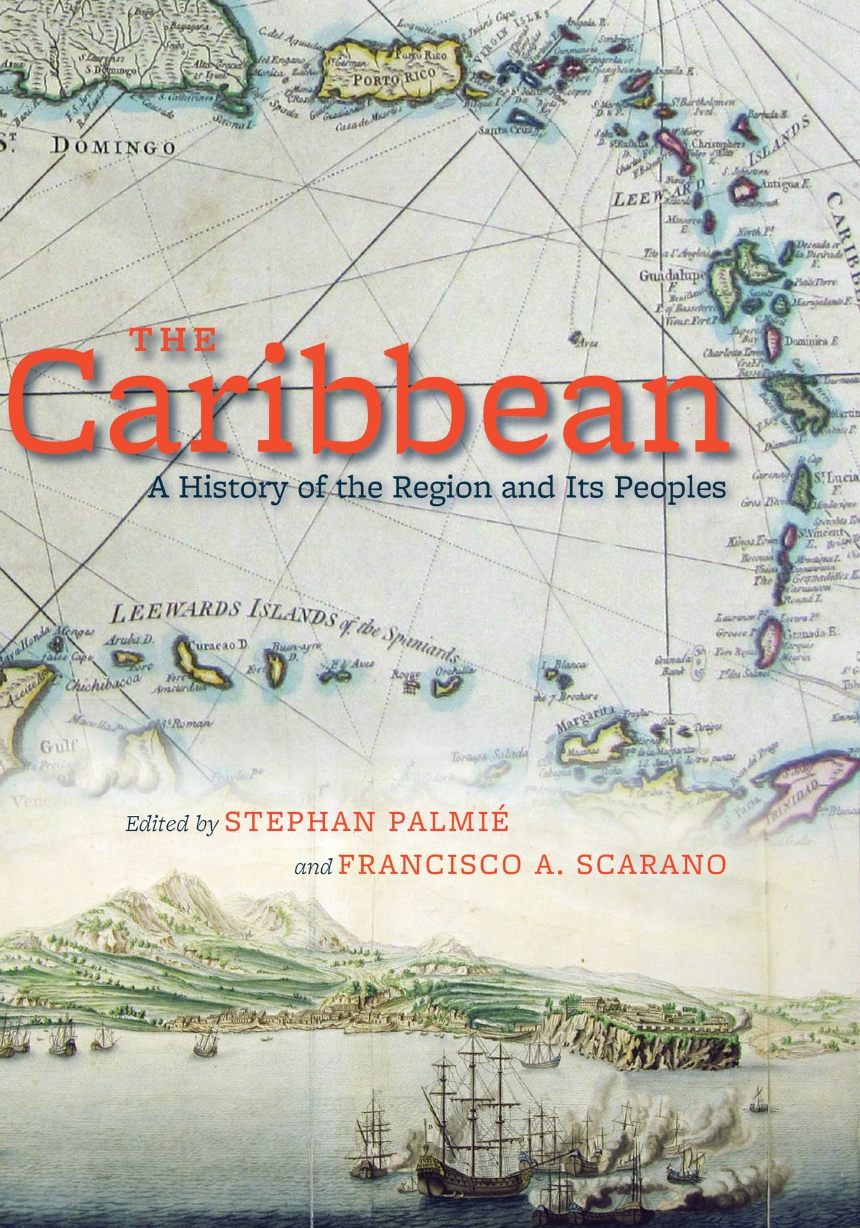The Caribbean
A History of the Region and Its Peoples
Combining fertile soils, vital trade routes, and a coveted strategic location, the islands and surrounding continental lowlands of the Caribbean were one of Europe’s earliest and most desirable colonial frontiers. The region was colonized over the course of five centuries by a revolving cast of Spanish, Dutch, French, and English forces, who imported first African slaves and later Asian indentured laborers to help realize the economic promise of sugar, coffee, and tobacco. The Caribbean: A History of the Region and Its Peoples offers an authoritative one-volume survey of this complex and fascinating region.
This groundbreaking work traces the Caribbean from its pre-Columbian state through European contact and colonialism to the rise of U.S. hegemony and the economic turbulence of the twenty-first century. The volume begins with a discussion of the region’s diverse geography and challenging ecology and features an in-depth look at the transatlantic slave trade, including slave culture, resistance, and ultimately emancipation. Later sections treat Caribbean nationalist movements for independence and struggles with dictatorship and socialism, along with intractable problems of poverty, economic stagnation, and migrancy.
Written by a distinguished group of contributors, The Caribbean is an accessible yet thorough introduction to the region’s tumultuous heritage which offers enough nuance to interest scholars across disciplines. In its breadth of coverage and depth of detail, it will be the definitive guide to the region for years to come.
Reviews
Table of Contents
Introduction: Caribbean Counterpoints
PART 1 THE CARIBBEAN STAGE
1 Geographies of Opportunity, Geographies of Constraint
David Barker
2 Contemporary Caribbean Ecologies: The Weight of History
Duncan McGregor
3 The Earliest Settlers
L. Antonio Curet
4 Old World Precedents: Sugar and Slavery in the Mediterranean
William D. Phillips Jr.
PART 2 THE MAKING OF A COLONIAL SPHERE
5 The Columbian Moment: Politics, Ideology, and Biohistory
Reinaldo Funes Monzote
6 From Tainos to Africans in the Caribbean: Labor, Migration, and Resistance
Jalil Sued- Badillo
7 Negotiations of Conquest
Lynne A. Guitar
8 Toward Sugar and Slavery
Stephan Palmié
9 Masterless People: Maroons, Pirates, and Commoners
Isaac Curtis
PART 3 COLONIAL DESIGNS IN FLUX
10 The Caribbean between Empires: Colonists, Pirates, and Slaves
Josep M. Fradera
11 Imperial Decline, Colonial Adaptation: The Spanish Islands during the Long 17th Century
Francisco A. Scarano
12 The Atlantic Framework of 17th- Century Colonization
Alison Games
13 Servants and Slaves during the 17th- Century Sugar Revolution
Hilary McD. Beckles
14 The French and Dutch Caribbean, 1600– 1800
Philip Boucher
15 Slaves and Tropical Commodities: The Caribbean in the South Atlantic System
Selwyn H. H. Carrington and Ronald C. Noel
PART 4 CAPITALISM, SLAVERY, AND REVOLUTION
16 Slave Cultures: Systems of Domination and Forms of Resistance
Philip Morgan
17 Rivalry, War, and Imperial Reform in the 18th- Century Caribbean
Douglas Hamilton
18 The Haitian Revolution
Laurent Dubois
19 The Abolition of Slavery in the Non- Hispanic Caribbean
Diana Paton
20 Econocide? From Abolition to Emancipation in the British and French Caribbean
Dale Tomich
21 Missionaries, Planters, and Slaves in the Age of Abolition
Jean Besson
PART 5 A REORDERED WORLD
22 A Second Slavery? The 19th- Century Sugar Revolutions in Cuba and Puerto Rico
Christopher Schmidt- Nowara
23 Peasants, Immigrants, and Workers: The British and French Caribbean after Emancipation
Gad Heuman
24 War and Nation Building: Cuban and Dominican Experiences
Robert Whitney
25 The Rise of the American Mediterranean, 1846– 1905
Luis Martínez- Fernández
26 The Conundrum of Race: Retooling Inequality
Elizabeth Cooper
27 Africa, Europe, and Asia in the Making of the 20th- Century Caribbean
Aisha Khan
PART 6 THE NEW EMPIRE
28 Building US Hegemony in the Caribbean
Brenda Gayle Plummer
29 The American Sugar Kingdom, 1898– 1934
César J. Ayala
30 Culture, Labor, and Race in the Shadow of US Capital
Winston James
31 Labor Protests, Rebellions, and the Rise of Nationalism during Depression and War
O. Nigel Bolland
32 Toward Decolonization: Impulses, Processes, and Consequences since the 1930s
Anne S. Macpherson
33 The Caribbean and the Cold War: Between Reform and Revolution
David Sheinin
PART 7 THE CARIBBEAN IN THE AGE OF GLOBALIZATION
34 The Long Cuban Revolution
Michael Zeuske
35 Independence and Its Aftermath: Suriname, Trinidad, and Jamaica
Anthony P. Maingot
36 The Colonial Persuasion: Puerto Rico and the Dutch and French Antilles
Humberto García Muñiz
37 An Island in the Mirror: The Dominican Republic and Haiti
Pedro L. San Miguel
38 Tourism, Drugs, Off shore Finance, and the Perils of Neoliberal Development
Robert Goddard
39 Caribbean Migrations and Diasporas
Christine M. Du Bois
Acknowledgments
Glossary
Bibliography
Contributors
Index
